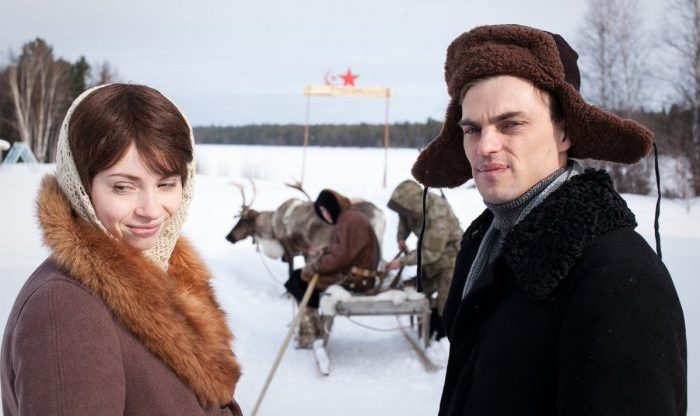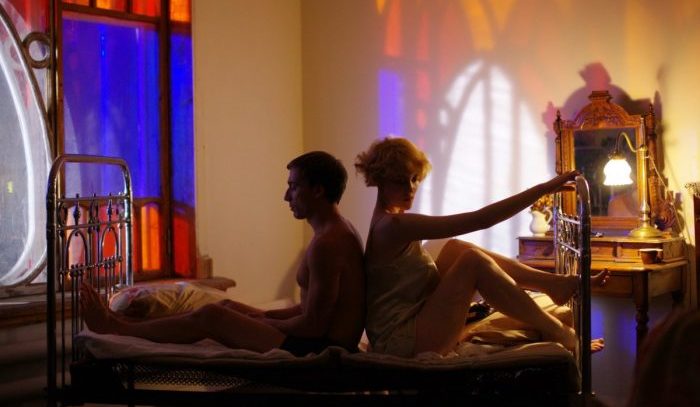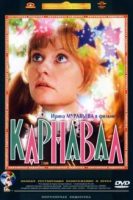Director: Aleksey Fedorchenko
Watch Angels of Revolution on FilmDoo
If someone were to tell of a little film that’s like Wes Anderson making a Soviet historical piece, your interest in witnessing this would depend entirely on your propensity for quirkiness and absurdity (and Russia). This is akin to what Aleksey Fedorchenko has created, however, and Angels of Revolution is a worthwhile experience. Purportedly based on true events in 1934, during the Kazym rebellions, a legendary Communist fighter, Polina, is tasked by the Soviet government to bring order and right to the far north of the land: the native people – Khanty and Nenets – have so far refused the new ideology, preferring to believe in their gods and goddesses, something completely unacceptable to the growing might of the Soviet Union. Polina travels north with five of her artistic friends, including a film director and a composer, trusting in their belief that art can be revolutionary.
The film can roughly be split into two halves, with the first introducing the avant-garde team of Soviets. Each one has a unique backstory and Fedorchenko includes several time-jumps. It’s chaotic, riveting, and constantly weird; like a Bolshevik Royal Tenenbaums. The second half details their experience with the indigenous groups in Siberia, as the avant-garde and ancient paganism clash inevitably. Everything points to a political piece, including the film’s title, but this is far removed from anything like Russian war classics like Come and See or Ivan’s Childhood; if Fedorchenko is to portray a dark chapter of his country’s history, he’ll do it in his own vibrant way.

The aforementioned rebellion saw the Khanty people violently oppose the forced overtaking of their land by the Soviets and was their last desperate attempt to hold onto their traditional way of life. The differences in their lifestyles is immediately apparent. The avant-gardists show them paintings; the Khanty discuss how they look like tents. They have no patience for absurdist theatre and would rather be shooting at sacks of water by the river. The Soviets try to convince them that cremation is more beneficial than burying the dead and turn a model of a church into a crematorium factory with billowing chimney. The final scene, removed from the rest of the film’s action in time, poignantly reflects on their battle, but is too effective to relay in review here.
Fedorchenko is careful to never outright choose a side and the film is better balanced for it; the avant-gardists’ mission isn’t overly-mocked, and the untouched culture of the Khanty isn’t overly-romanticised. We are made aware of the inherent difficulties in bringing such strikingly different groups together, and thus we understand that the Soviet dream was always doomed from the beginning.

Fedorchenko’s first film was the inimitable First on the Moon, a mockumentary about a fictional Soviet landing on the Moon, which preceded the United States first attempt, and if one has seen it, his unconventional style in Angels of Revolution won’t be quite so surprising. In so much as there is a narrative current, what’s most important – and what Fedorchenko seems to care about the most – is the numerous little vignettes that make up the whole picture; while one may not affect the viewer, another will arrive to tempt and intrigue. His scenes are offbeat, strange, but always intoxicating. It’s this obsession that makes the filmmaker one of the most underrated talents in world cinema, and one hopes greater exposure in the international circuit is still his to achieve.
Often baffling, always fascinating, Angels of Revolution deserves to be watched to see the work of a director full of ideas and aspirations. It might be self-indulgent at times, and Fedorchenko loses his momentum at points, but it’s essentially a film about avant-gardists by an aspiring one and is a worthwhile homage to preceding comrades.
Watch Angels of Revolution on FilmDoo








